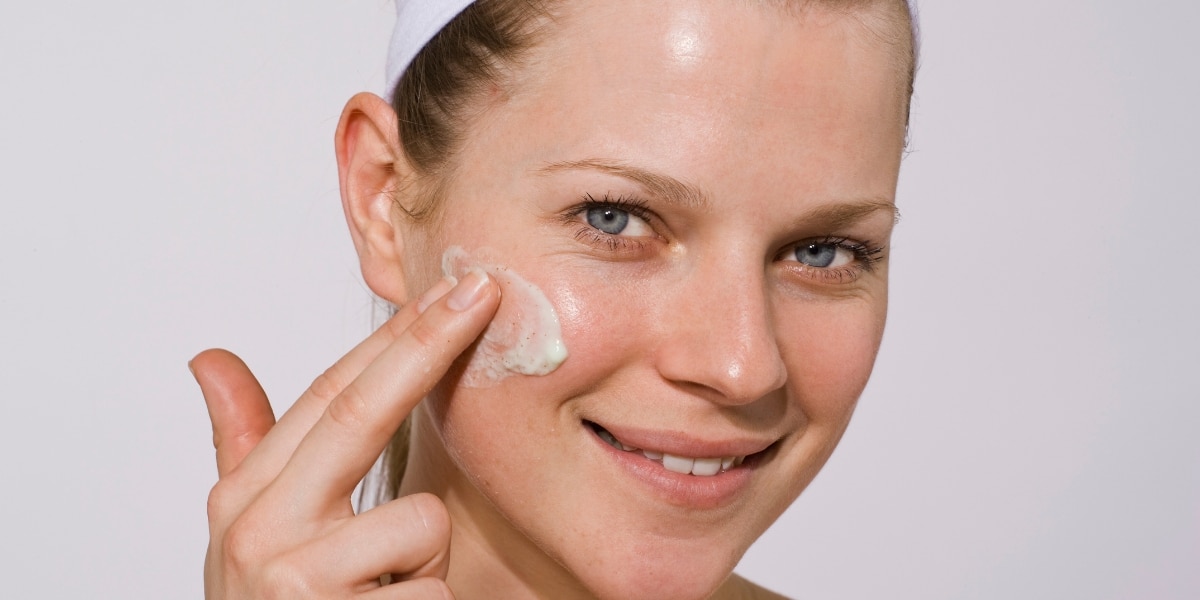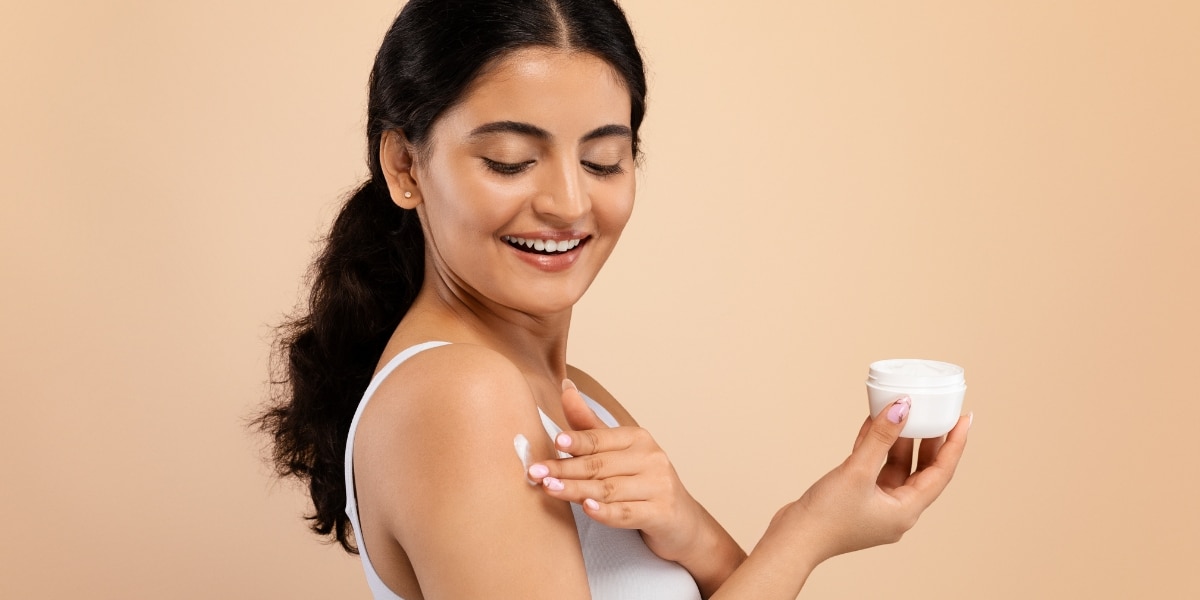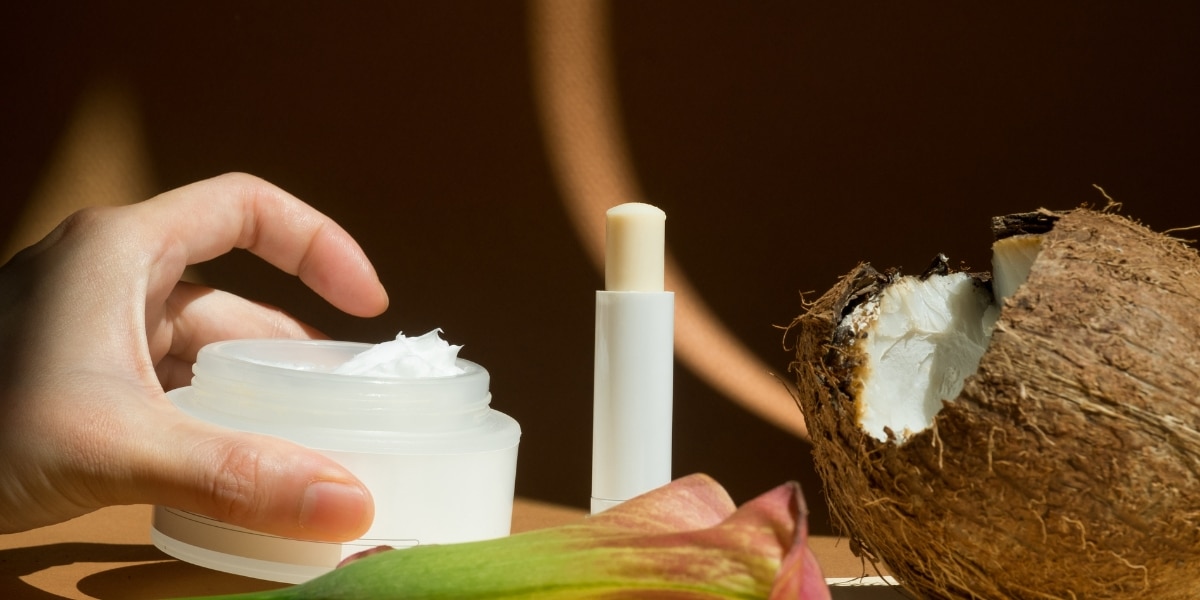Blog
What Is a Moisturizer? Benefits and Types Explained

Moisturizers are an essential part of every skincare routine, regardless of age or skin type. They are designed to keep your skin hydrated, soft, and smooth. But what exactly is a moisturizer? How does it work, and what types are best for different skin needs? In this article, we’ll explore what a moisturizer is, the various benefits it offers, the different types available, and how to use them effectively.
What Is a Moisturizer?
A moisturizer is a skincare product that helps to hydrate and lock moisture into the skin. It works by forming a barrier on the skin’s surface that prevents water from evaporating, keeping the skin soft, smooth, and well-nourished. Moisturizers contain a combination of humectants, emollients, and occlusive that provide hydration, repair the skin barrier, and retain moisture.
Key Ingredients in Moisturizers
- Humectants: These attract water to the skin from the environment or from deeper layers of the skin. Examples include glycerin, hyaluronic acid, and urea.
- Emollients: These are ingredients that soften and smooth the skin. Examples include oils like shea butter, jojoba oil, and fatty acids.
- Occlusive: These help form a protective barrier on the skin’s surface to prevent moisture loss. Common occlusive include petrolatum, beeswax, and dimethicone.
Each of these ingredients plays a vital role in maintaining skin hydration and preventing dryness.
What is a Body Moisturizer?
Body moisturizer is a skin care product used to help you maintain smooth and healthy-looking skin all over your body. Moisturizer helps to give your skin an extra boost of hydration. Body moisturizers are known to be thicker than facial moisturizers and can be formulated to target your unique skin concerns. Learn more about the different types of moisturizers and the right moisturizer for your skin type.
Types of Body Moisturizers
Body Lotion
Body lotions are known to be quick-absorbing and lightweight. These skin care products are excellent for daily use and help to moisturize the skin without feeling greasy. Many body lotions contain hydrating ingredients of glycerin, hyaluronic acid, and ceramides.
Body Butter
Body butter is a thick moisturizer used to nourish the skin. Thicker than moisturizing creams and lotions, this product is ideal for those with dry patches and rough areas of skin. These regions typically include the elbows, knees, and heels. Body butters are commonly formulated with shea butter, mango butter, or coconut oil.
Body Cream
Body creams are thicker than lotions, helping individuals with severely dry skin. Body creams intensely hydrate the skin and seal in moisture. This long-lasting moisturizing product is commonly formulated with nourishing oils, shea butter, or coconut butter.
Body Oil
Body oils are ideal for individuals with very dry or sensitive skin. Body oils are best when applied after a shower to lock in moisture. Some common skin oils include jojoba, argan oil, and almond oil.
Benefits of Using a Moisturizer
Moisturizing your skin is not just about keeping it soft and smooth. Regular use of a good moisturizer offers several skin benefits, including:
1. Hydrates the Skin
The primary benefit of moisturizers is to hydrate the skin. Proper hydration helps prevent dryness, tightness, and flakiness, keeping the skin comfortable and plump.
2. Maintains Skin’s Natural Barrier
Moisturizers help to repair and maintain the skin’s natural protective barrier, which shields it from harmful environmental factors such as pollution, bacteria, and UV rays.
3. Reduces the Appearance of Wrinkles
Moisturizers containing anti-aging ingredients like hyaluronic acid and peptides can reduce the appearance of fine lines and wrinkles. Well-hydrated skin looks plumper and more youthful.
4. Soothes Irritated Skin
Moisturizers that contain calming ingredients like aloe vera, chamomile and calendula help soothe sensitive or irritated skin. Regular moisturizing can calm redness and inflammation.
5. Improves Skin Texture
By maintaining proper hydration, moisturizers help improve the skin’s texture, making it feel smoother and softer. Regular use can also enhance the appearance of dull or rough skin.
Different Types of Moisturizers
There are many types of moisturizers available in the market, each designed for specific skin needs. Whether you have dry, oily, or sensitive skin, there is a moisturizer suited for your skin type.
1. Body Moisturizer
Body moisturizers are designed for the skin on your body, as opposed to facial moisturizers which are formulated for the more delicate skin on your face. Body moisturizers come in lotions, creams, and oils and are used to prevent dry skin, hydrate, and restore moisture to the skin.
For dry skin, you need a thick, rich moisturizer that will deeply hydrate and lock in moisture. Look for products with ingredients like shea butter, cocoa butter, and oils (such as jojoba or almond oil). These ingredients are highly nourishing and provide long-lasting hydration.
2. Face Moisturizer
Facial moisturizers are lighter than body moisturizers and are formulated to address specific concerns such as acne, anti-aging, or sensitive skin. These moisturizers may contain added ingredients like salicylic acid for acne-prone skin, or retinol for anti-aging benefits.
3. Night Creams
Night creams are thicker moisturizers designed to be used before bed. They often contain more potent ingredients like retinol, peptides or antioxidants to support skin repair during the night when the skin is more receptive.
4. Oil-Based Moisturizers
Oil-based moisturizers are perfect for those with extremely dry or mature skin. These moisturizers often contain plant oils, like argan oil, which are rich in fatty acids and antioxidants. They provide deep nourishment and create a protective barrier to prevent moisture loss.
5. Gel-Based Moisturizers
Gel-based moisturizers are lightweight and ideal for oily or acne-prone skin. They are typically non-comedogenic (won’t clog pores) and offer hydration without leaving a greasy residue. These moisturizers often contain ingredients like hyaluronic acid to help draw moisture into the skin.
6. Lotion vs. Moisturizer: What’s the Difference?
While lotions and moisturizers serve the same basic purpose of hydrating the skin, there are key differences between the two:
- Lotion: A lotion is a lighter form of moisturizer with a higher water content. It’s designed for quick absorption and is often used for everyday hydration. Lotions are great for oily or combination skin.
- Moisturizer: Moisturizers can come in different forms (creams, gels, oils) and are generally thicker and more emollient. They are better for dry, mature, or sensitive skin.
The main distinction lies in the consistency and level of hydration, with moisturizers often providing a richer, more substantial layer of moisture than lotions.
Best Moisturizers for Your Skin Type
1. All Skin Types
Oils and lotions formulated with vitamin B can help all skin types. Products formulated with vitamins B3 and B5 are ideal for usage during the day and in the evening.
2. Normal Skin
Normal skin appears to be a balanced canvas for moisturizer. Normal skin does not appear overly oily or dry. The best moisturizing products for normal skin include water-based lotions.
3. Dry Skin
Dry skin can appear flaky, peeling, itchy, and rough to the touch. Dry skin requires a moisturizer that can lock the moisture onto your skin—thicker moisturizers such as those formulated with lactic acid or petroleum jelly are best for dry skin. Thicker moisturizers are best when applied at night.
4. Oily Skin
Those with oily skin may experience excess shine, breakouts, and grease. Oily skin can benefit from the moisturizing capabilities of water-based lotions.
5. Combination Skin
Combination skin is known for simultaneously having dry skin and excess oil. Many individuals with combination skin experience oil on the T-zone of their face and dry patches on their cheeks. Medium-weight lotions are best for those with combination skin.
6. Sensitive Skin
Those with sensitive skin may notice redness, itchiness, and rashes on their skin. Its best to use products that have ingredients for sensitive skin.
How to Moisturize Your Body Naturally
Moisturizing your body doesn’t always require store-bought products. You can use natural ingredients found in your kitchen or garden to hydrate your skin:
1. Coconut Oil
Coconut oil is a natural moisturizer rich in fatty acids. It hydrates dry skin and has antibacterial and antifungal properties. Apply a small amount of virgin coconut oil to your body after showering to lock in moisture.
2. Honey and Olive Oil
Honey is a natural humectant, meaning it draws moisture to the skin. Combined with olive oil, it creates a nourishing mixture that can hydrate and soften skin. Simply mix the two and apply to the body for 10-15 minutes before rinsing off.
3. Aloe Vera
Aloe vera is a great option for soothing and hydrating skin, especially if you have sensitive skin. It can help calm irritation and inflammation while providing deep moisture.
How to Use Body Moisturizer
Knowing how to use a body moisturizer is key to ensuring its effectiveness. Here are some simple steps to properly moisturize your skin:
- Apply After Showering: Apply moisturizer within three minutes of stepping out of the shower to lock in hydration.
- Use a Generous Amount: Don’t skimp on moisturizer. Make sure to cover all areas of the body, paying special attention to dry areas like elbows, knees, and feet.
- Massage in Circular Motions: Gently massage the moisturizer into your skin using circular motions. This helps stimulate circulation and ensures the product absorbs properly.
- Use Daily: For best results, apply body moisturizer every day, especially in dry climates or winter months.
FAQ About Moisturizers
Conclusion
Moisturizers play a crucial role in keeping your skin hydrated, soft, and healthy. Understanding the different types of moisturizers, knowing how to use them properly, and selecting the right one for your skin type are essential steps in maintaining healthy, glowing skin. Whether you’re looking for a body moisturizer, a rich night cream, or a lightweight face lotion, there is a moisturizer that can meet your specific needs. Keep your skin nourished and protected by making moisturizing a regular part of your skincare routine!



